
Shelterforce Resource
Explainers
Housing and community development can be complex, and no one is an expert on every corner of it. Even the experts sometimes have trouble breaking down what they know for others. Shelterforce explainers will help you introduce yourself to new topics, and to explain key points and frequently asked questions to others. Have a topic you’d like covered in an explainer? Send it to [email protected]
Explore Explainers
filter by Topic
filter by Date Range
search by Keyword
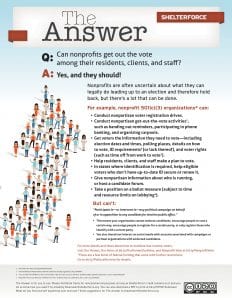
Q: Can Nonprofits Get Out the Vote?
A. Yes! Nonprofits are often uncertain about what they can legally do, but they can get out the vote among their residents, clients, and staff.
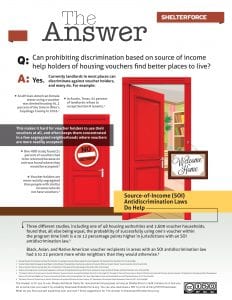
Q: Can Prohibiting Source-of-Income Discrimination Help Voucher Holders?
A: Yes. Landlords in most places can discriminate against voucher holders, and many do. This often keeps voucher holders in a few segregated neighborhoods.
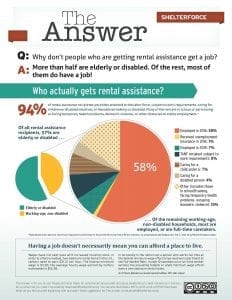
Q: Why Don’t People Who Get Rental Assistance Get a Job?
A: More than half are elderly or disabled. Of the rest, most of them do have a job! Ninety-four percent of rental assistance receipts are …
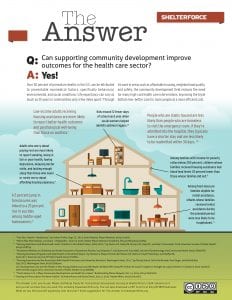
Q: Can Supporting Community Development Improve Outcomes for the Health Sector?
Yes! Over 50 percent of premature deaths in the U.S. can be attributed to preventable non-medical factors, specifically behavioral, environmental, and social conditions.
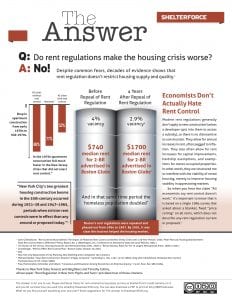
Q: Do Rent Regulations Make the Housing Crisis Worse?
A: No! Despite common fears, decades of evidence shows that rent regulation doesn’t restrict housing supply and quality. Feel free to print and distribute! Click on the image above to […]

Q: Is It Time to Bury Racially Loaded Planning and Development Terms?
Shelterforce has gathered some racially loaded terms that are common in our field. We suggest you use these sparingly and carefully, if at all.
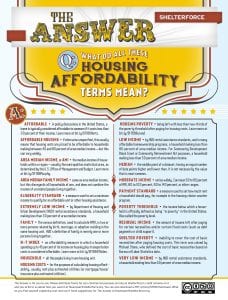
Q: What Do All These Housing Affordability Terms Mean?
While we use terms like “affordable housing,” “moderate income,” “housing poverty,” and “area median income” often, we thought it’d be helpful to explain what all these housing affordability terms mean. Make sure you’re using these 19 terms correctly.
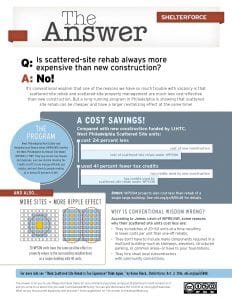
Q: Is Scattered-site Rehab Always More Expensive Than New Construction?
A: No! A long-running program in Philadelphia is showing that scattered site rehab can be cheaper and have a larger revitalizing effect at the same time.
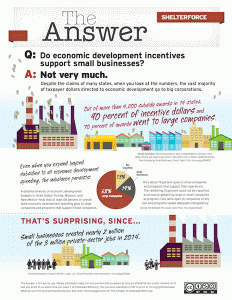
Q: Do Economic Development Incentives Support Small Businesses?
A. Not very much. Despite the claims of many states, when you look at the numbers, the vast majority of taxpayer dollars directed to economic development go to big corporations.
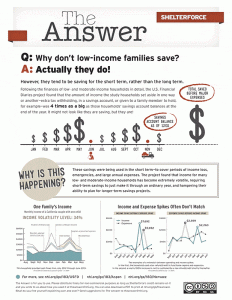
Q: Why Don’t Low-income Families Save?
A. Actually they do! However, they tend to be saving for the short term, rather than the long term.
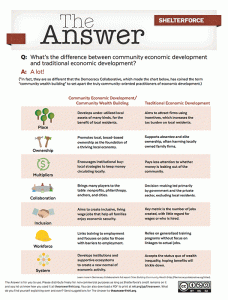
Q: What’s the difference between community economic development and traditional economic development ?
A: A lot! In fact, they are so different that the Democracy Collaborative, which made the chart below, has coined the term “community wealth building” to set apart the truly community-oriented practitioners of economic development.
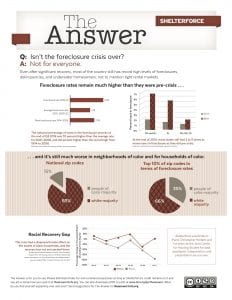
Q: Isn’t the Foreclosure Crisis Over?
A: Not for everyone. Even after significant recovery, most of the country still has record high levels of . . .

Shelterforce Weekly
Like what you’re reading? Subscribe and make sure you get new articles and more in your inbox every week.
